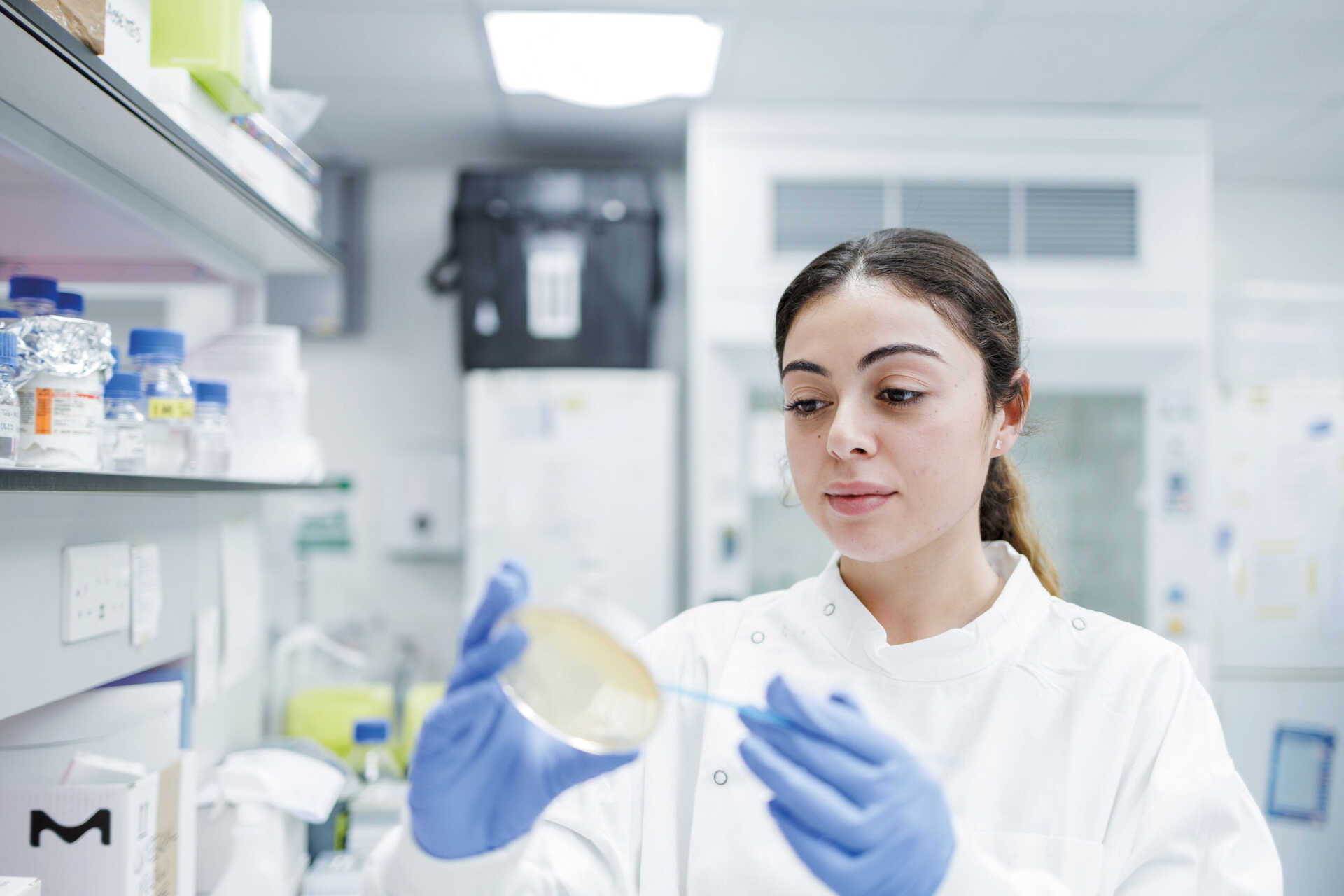Facilities

Learn in an industry-standard environment
Get to know us
Meet Adrianna and Cyrus as they take you on a video tour of our world-leading bioscience facilities on our beautiful Canterbury campus.

Search by course name, subject, and more
Search by course name, subject, and more
Search by course name, subject, and more
Search by course name, subject, and more
Search by course name, subject, and more

Our well-equipped laboratories provide an excellent environment for teaching and research.
Our undergraduate students get the opportunity to use industry-standard equipment, giving them an edge in the job market, while our postgraduate students benefit from equipment that helps them carry out cutting-edge research.
Practical work is at the heart of our teaching. It's important to train in a well-equipped environment as this allows you to gain the practical skills that are in high demand in the industry.
We recently spent £2 million on our teaching laboratories in order to provide a world-class environment. We ensure the equipment is updated regularly and our teaching labs are managed by a dedicated team of experienced technicians.
Biomolecular Science Facility: Protein mass spectrometry (Waters Synapt G2Si and Bruker micrOTOF-Q), GCMS (Agilent, single quad), MALDI-TOF/TOF mass spectrometry, UHPLC, HPLC, nanoLC, fluorimetry, and circular dichroism.
Biological NMR Facility: 600 MHz five channel Bruker Avance III spectrometer with a cryoprobe which can observe a wide range of biologically relevant nuclei at high sensitivity and a 24 place sample changer. The spectrometer is used for structural biology, molecular dynamics measurements, drug binding and discovery campaigns, metabolomics and the analysis of small molecules.
Cell Image Analysis Facility: Zeiss LSM 880 Elyra confocal microscope with Airyscan and PALM/STORM Super Resolution, Jeol 1230 120kV Transmission Electron Microscope equipped with a Gatan One View 16mp camera with automatic drift correction, Bruker Multimode Atomic Force Microscope and Leica EM UC7 ultramicrotome and diamond knives.
Other specialist equipment available in research labs: animal cell culture facilities, animal cell and bacterial fermentation, cell sorting, anaerobic sample handling, fast reaction kinetics, parallel computing cluster, laser trap rig, automated sample handling, level 3 containment.
Our state-of-the-art analytical and imaging resources allow for in-depth research into molecular processes. Research is supported by three facilities:
Each research facility has its own manager who provides technical expertise and training for users.
Our facilities are available for use by researchers or industry and we are always keen to hear about potential collaborative projects with industrial partners. We also provide consultancy services to businesses. Contact the Knowledge Exchange and Innovation team to learn more.